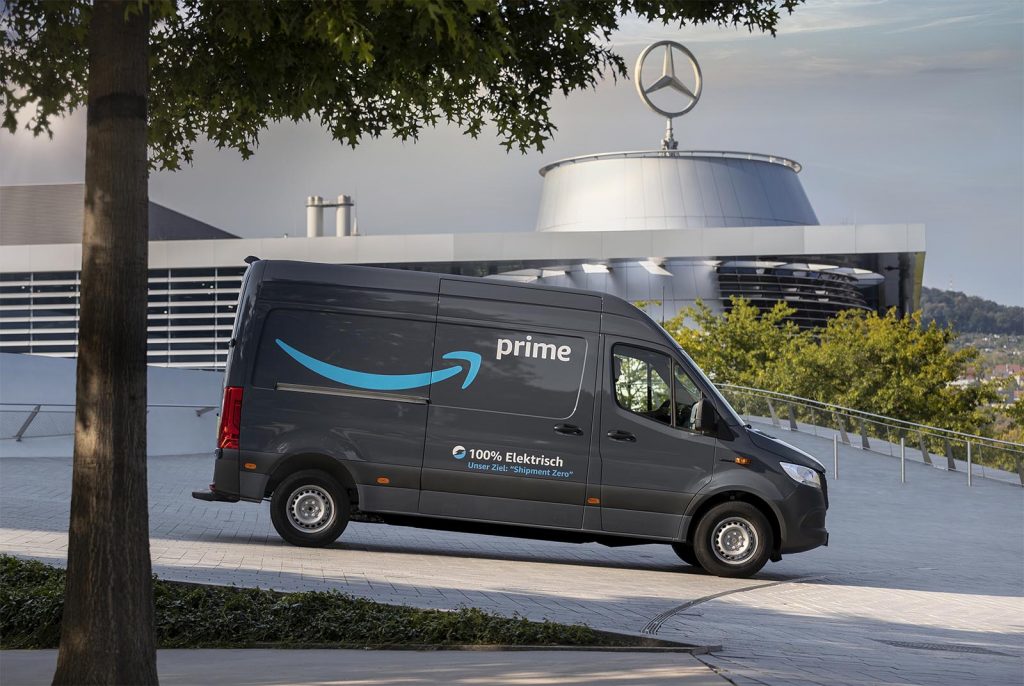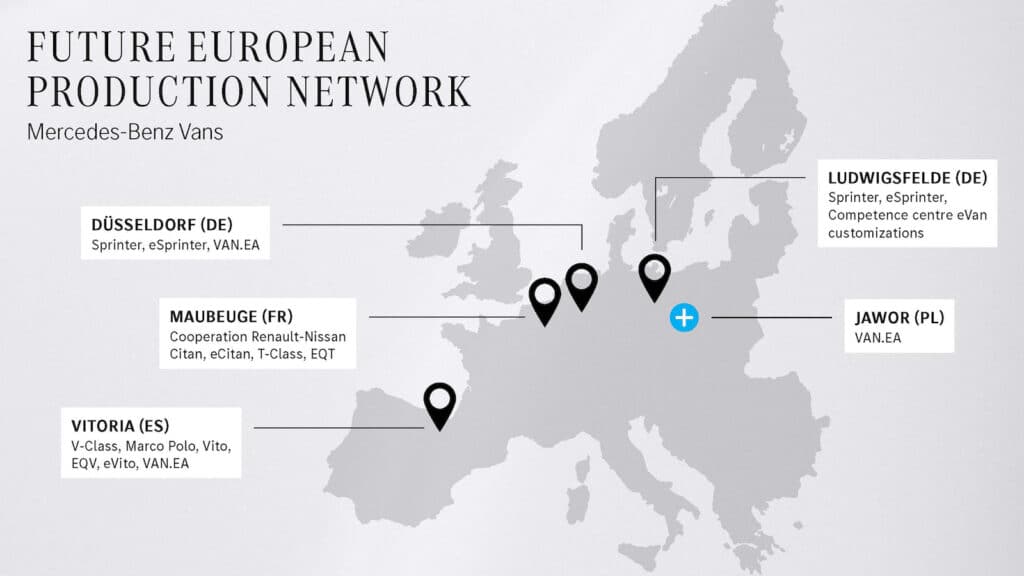Rivian, Mercedes-Benz Joint Venture Paused

The planned European-market joint venture between Rivian and Mercedes-Benz has been put on hold, according to both companies. The pause comes a mere three months after the collaboration was announced.

According to a statement released by Mercedes-Benz today, “a new joint venture manufacturing company together with Rivian for large all-electric Vans is on hold due to Rivian’s ongoing reprioritization of projects.”
Mercedes-Benz Van plans continue
The statement comes as Mercedes-Benz is reorganizing its van production in Europe as it develops its new electric van architecture, dubbed VAN.EA, which will be produced by the company in Jawor, Poland.
“We signed a memorandum of understanding with the Polish government and other Polish economic partners,” said Mathias Geisen, head of Mercedes‑Benz Vans. “This shows that we use the excellent conditions and common infrastructure at the established Jawor location to build a new plant for the production of vans.”

Since 2019 Mercedes-Benz Cars has been manufacturing internal combustion engines in Jawor, adding battery production in 2021. The factory was to be expanded for the new joint venture, but that’s now on hold. The current generation of the Sprinter and eSprinter are already built in the Mercedes-Benz Düsseldorf facility, and a newly designed model will be introduced there in the second half of 2023.
The Jawor facility will be the fourth in Mercedes-network Benz’s of European van manufacturing plants, which the company is restructuring to focus on producing only fully-electric vans built on the VAN.EA platform.
The companies did not say when the joint venture might resume.
Not the first setback this year
For its part, Rivian’s share price has taken a pounding this year, down nearly 75%, and today’s news won’t help.
“At this point in time, we believe focusing on our consumer business, as well as our existing commercial business, represent the most attractive near-term opportunities to maximize value for Rivian,” Chief Executive Officer RJ Scaringe said in Rivian’s statement to Automotive News.

But it’s just the latest in a litany of problems that have plagued the company this year. In July, the EV manufacturer laid off 6% of its workforce to help offset rising costs due to inflationary pressures. Then, in October, Rivian recalled 13,000 trucks out of the roughly 14,000 that have been made this year, for suspension nuts that may not have been torqued properly, which could cause the front suspension to separate. All the while, it’s battling the same supplier constraints all manufacturers are grappling with.
Through Nov. 1, Rivian sold 9,700 R1S and R1T models. Rivian also has an order from online retailer Amazon for 100,000 electric vans, which it plans to build by 2030. Amazon currently has more than 1,000 Rivian delivery vans in use in the U.S.







